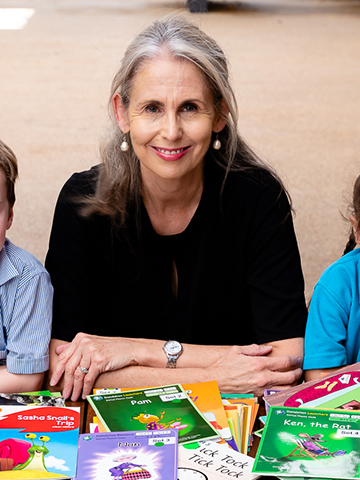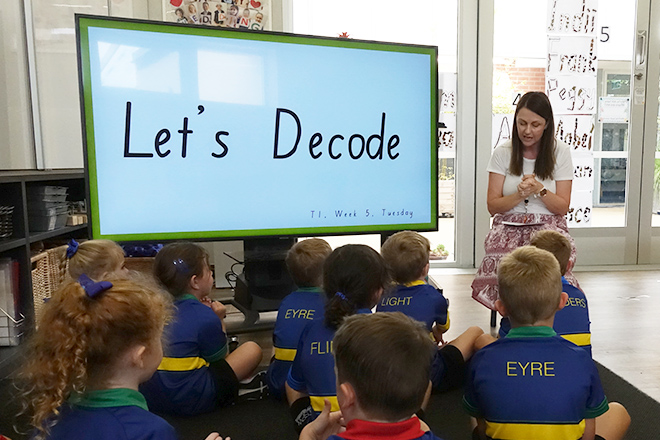Many parents in our school community will know that in 2020, we’re placing an even stronger focus on literacy at St Peter’s Woodlands (SPW).
We believe the importance of literacy – and the foundation it sets for children for life – can’t be overstated.
“Our goal is to ensure every child can read and our commitment to our parent community is to apply evidence-based research as the foundation to our practices when helping children towards achieving this. We owe it to every child to give them the best opportunities to learn to read,” says Chris Prance, Principal.
“In 2019 we introduced Let’s Decode to our students in ELC, Reception, Year 1 and Year 2 as we understand this to be a data-driven program, grounded in research about how the brain best learns to read.”
As the only Independent school in SA running this evidence-based program, we’re thrilled to report that after just five months, we’ve already seeing some remarkable results.
Decoding the secret to reading and writing

Championed by Australian childhood literacy expert Dr Lorraine Hammond, the Let’s Decode program includes oral language activities to prepare students for beginner literacy, strategies to teach beginner reading, as well as developing phonological awareness in children.
It has been based on research about how the brain learns to read.
“Our brains evolved to talk, not to read,” Lorraine said.
“Reading print is a ‘bolted on’ extra that children need to learn.
“Let’s Decode is based on the Science of Reading, which is research on how the brain learns to read.
“The program helps children to hear sounds in words which in turn helps the brain to map letters to sounds when they see a word in print.”
Let’s Decode sessions run for 15 minutes each day, and are delivered using explicit teaching.
“Explicit teaching is an approach that recognises learning something new – like reading, spelling, writing, mathematics and tying shoelaces – requires explicit step-by-step instruction and lots of practise,” says Lorraine.
“By breaking tasks down into manageable parts, regularly checking for understanding and ensuring participation, children learn more efficiently and effectively – basically, it teaches more in less time.
“Once students can read and write they can use these skills to engage in more authentic problem-based learning.”
Literacy success
Lorraine has been implementing the Let’s Decode program at dozens of primary schools interstate, with impressive results.
“Typically, students who attend schools running the Let’s Decode program are reading proficiently by the end of Year 2,” said Lorraine.
Just five months after the program was introduced at SPW, new levels of literacy success have been recorded.
“The 15-minute Let’s Decode sessions, run each day, have had a remarkable impact on our students’ literacy skills,” said SPW’s Head of Learning and Teaching, Amanda Kelly.
“We are already seeing levels of success and confidence increasing amongst students.”
 Carly Sinclair, a mother to a current SPW Reception student has positively praised the program.
Carly Sinclair, a mother to a current SPW Reception student has positively praised the program.
“I have been thrilled with the systematic approach to teaching phonics and the methods in which the sounds/words are introduced.
“Children are involved in the process of learning new sounds each week. The students feel successful as they are all supported at each stage of their learning.
“Reading skills are vital and this approach develops a love of reading from an early age as children have the skills to transfer to various words and texts.”
Since introducing the Let’s Decode program at our school, it has helped provide a common ‘language’ and purpose for our teachers and students.
We are thrilled to see this being translated into literacy success for our students too.